For two years politicians and analysts have offered grim forecasts that never seem to materialize
Ever since Russia’s military operation against Ukraine began in February of 2022, there has been a steady flow of predictions from Western politicians, analysts, and commentators about the impending demise of the Russian economy.
In fact, the prognosticating started even before those fateful days in February. A few weeks prior, when the Russian troop buildup on the border with Ukraine was eliciting a palpable anxiety in the halls of finance, I remember meeting an expat Western financial analyst in Moscow.
“If Russia ‘invades’,” my interlocutor told me, “they’re going back to the Soviet Union of the 1980s – a primitive, impoverished economy with Western goods available mostly on the black market.”
He spoke as if the Western financial system were the umbilical cord Russia’s economy depended on to sustain itself. He was hardly alone in this view.
The initial wave of forecasts (if you can call the overwrought proclamations emanating from the US and Europe at the time ‘forecasts’) were triumphant and self-confident in tone – and also downright apocalyptic. The Western elite truly believed they held in their arsenal a financial weapon of mass destruction and had deployed it with devastating effect on Russia.
“We will provoke the collapse of the Russian economy,” French Finance Minister Bruno Le Maire bluntly told a local news channel less than a week after the conflict began.
Read more
Biden makes prediction about Russian economy
US President Joe Biden went even further. “Our sanctions are likely to wipe out the last 15 years of Russia’s economic gains,” he said. “We’re going to stifle Russia’s ability for its economy to grow for years to come.” Those comments came after his now-infamous mocking of the ruble as having turned to “rubble.”
Grave historical comparisons were rife and not only from politicians. JPMorgan likened what Russia was facing to the 1998 crisis, when the ruble lost two-thirds of its value, savings were wiped out, and the country defaulted on its debt. The bank predicted an 11% drop in GDP in 2022.
Not to be outdone with the historical comparisons, political analyst Maximilian Hess went further, saying that Russia was headed “not only back into the chaos of the 1990s, but into an even graver situation more akin to 1918.”
Russia was also facing what one economics professor at the University of California at Los Angeles called the “complete isolation from the rest of the world, which is indeed a catastrophe in many different ways.” It is, of course, unclear how that assertion was squared with the fact that countries representing two-thirds of the world’s population have not sanctioned Russia.
Already by early April, just a little more than month into the conflict, some tempering of the exuberance could be detected. Russia, after all, hadn’t exactly collapsed and in fact the initial acute panic had subsided very quickly. Among the first to make note of Russia’s nascent resilience was The Economist, which penned an article in which it posed the question: “Is the West’s strategy still going to plan?” It was, to the credit of the publication, a fairly balanced portrayal of how things had played out over the first month.
This roughly marked the beginning of a shift in the tone of the ‘Russia-is-collapsing’ narrative over the next few months. No longer were the four horseman of the apocalypse riding into the Kremlin. The extravagant historical comparisons subsided. But make no mistake, Western analysts assured, the Russian economy is in bad shape – it was just that the descent was turning out to be a little slower and a little less dramatic than anticipated.
Read more
An Atlantic Council piece from June 2022 embodies this shift: ‘Sanctioning Russia is a long game. Here’s how to win.’ Foreign Policy magazine stuck with the collapse theme but the headline of a piece from July 2022 (‘Actually, the Russian Economy Is Imploding’) has that very telling word ‘actually’ added. It roughly translates as: there is a lot of evidence to the contrary but we are still asserting this.
By September of 2022, the euphoria of the first weeks had decidedly given way to a creeping frustration. CNN ran an article titled ‘Russian sanctions slow to bite as US officials admit frustrations over pace of pain in Moscow.’
In the piece, “senior US officials” told CNN that there was disappointment that the restrictions hadn’t had a bigger impact so far, but they believed that the harshest effects probably wouldn’t materialize until early 2023. Early 2023, of course, came and went.
Meanwhile, a face-saving operation about the true aim of sanctions was already in effect and could be seen in that article and many others. Another official told the outlet that those crafting the sanctions had actually “always believed that the steepest impacts would not necessarily be immediate,” adding that “we’ve always seen this as a long term game.” In other words, they knew all along nothing much was going to happen anytime soon. Maybe somebody could have told Biden that and saved him the embarrassment of waxing lyrical about erasing the last 15 years of economic gains.
In February of 2023, a series of “sanctions one year in” pieces came out. The overall tone was decidedly one of warding off disappointment by focusing on the long game. The author of a Martens Centre report on sanctions wrote: “Don’t look at the watch every five minutes to see if sanctions are working. Exercise strategic patience.”
For the first part of 2023, the predominant tone was largely a grudging acknowledgement of the resilience of the Russian economy mixed with still-upbeat insistences that Russia’s day of reckoning would yet come. Meanwhile, quite curiously, the articles that began appearing in the Western press seemed to have been written using the same template: begin with a blunt acknowledgement that Russia is not actually collapsing before launching into a discussion of how under the surface all sorts of problems are accumulating.
Read more
Russian economy growing faster than main Western rivals – Putin
In August, the ‘Russia-is-collapsing narrative’ got a bit of wind under its sails when the ruble entered a rough patch and even broke through the psychologically important 100 barrier against the dollar. It was at the time down about 20% on the year and was among the worst performing emerging-market currencies. A spate of articles emerged discussing the ruble’s woes and asserting that the weakening currency was indicative of the long-awaited fissures starting to appear.
A Bloomberg opinion piece discussing what it called the “sickly ruble” had the sub-headline: “Sanctions have not breached Russia’s economic fortress, but they have put a time bomb under its foundations.” But the lede of the story stuck to the above-described template: “Western countries have imposed more than 13,000 sanctions on Russia – yet the Russian economy shows no sign of collapsing.”
The very next day, Timothy Ash, an influential veteran emerging-market analyst, wrote an article that also began with a bit of backtracking. “A commonly heard complaint… is that Western sanctions are not working,” the piece begins. “Let’s acknowledge this from the outset – Russia is showing great economic resilience and durability.”
But eventually he got to the main point, which is that the weakened ruble is a “flashing red light that the sanctions are indeed working.” As evidence, he says that “no country likes to see its currency devalue, as this implies economic problems, particularly a weakening balance of payments position and causes high inflation.” The central bank, he maintains, “would not have let the ruble slide unless it was in difficulty.” Exactly how the central bank was “in difficulty” is not explained, but something menacing must have been lurking under the floorboards.
To shore up the ruble last autumn, Russia tightened currency controls and hiked interest rates and the currency has subsequently stabilized. Certainly, these are stop-gap measures that the authorities were compelled to take in response to an imbalance. But Ash and other sanctions cheerleaders clearly thought they would get more mileage out of the ruble’s volatility.
With the ‘flashing red light’ reduced to a faint glow, the narrative moved on. We haven’t seen many ruble stories recently. The next and most recent theme that the ‘Russia-is-collapsing’ crowd latched on to is the idea that the Russian economy is overheating. An economy is considered to be overheating when it is expanding at an unsustainable rate that reaches the limits of its capacity to meet demand.
Read more
West ‘seriously underestimated’ Russia’s economic clout – report
The overheating theme caught on and, predictably, a wave of articles ensued. The Economist ran a piece in December discussing Russia’s elevated inflation rate, high percentage of GDP spent on defense, and burgeoning labor shortage. While admitting that “predictions of an economic collapse – made almost uniformly by Western economists and politicians at the start of the war in Ukraine – have proved thumpingly wrong,” – the template holds! – it asserts that the Russian economy cannot take such levels of growth.
Although the piece goes on to acknowledge the steps that can be taken to mitigate the effects of this overheating, it concludes with the words, “[but] in Russia there are more important things than economic stability,” implying that Russia’s leadership is sacrificing the economy to win the Ukraine conflict. It’s a remarkable observation coming from the Western camp, where many politicians – think Germany first and foremost – have been all too willing to sacrifice economic stability at the altar of the Ukraine fantasy.
On the heels of The Economist came a long piece in Foreign Affairs magazine penned by Alexandra Prokopenko, a Russian-born scholar at the Carnegie Russia Eurasia Center in Berlin. Titled, ‘Putin’s Unsustainable Spending Spree,’ it was also crafted out of the same template, acknowledging that Russia’s economy has defied forecasts before proceeding to share the bad news. The bad news is the economy’s overheating. Her point is that Russia’s surprisingly strong growth figures, “rather than signaling economic health [are] symptomatic of overheating.”
Similar to the article in The Economist, Prokopenko touches on high government spending – particularly on defense – as well as rising wages due to a labor shortage, and high inflation, all of which adds up to “an illusion of prosperity.” One wonders what the Berlin-based Prokopenko would have to say about her new adopted country, where all traces of prosperity – illusory or otherwise – are rapidly fading.
Read more
Ivan Timofeev: Here’s why Russia enters 2024 in a better position than it was in 12 months ago
Although Prokopenko indulges in the usual Russophobic rhetoric and shopworn Western tropes, some of her concerns about overheating have been expressed by the Russian authorities themselves. In other words, the risk of overheating is an acknowledged problem. In September, for example, the central bank warned that the economy may have grown beyond its productive potential. Historically, a particularly dangerous aspect of overheating has been asset bubbles, which tend to wreak havoc on an economy when they pop. Russia has been witnessing a phenomenal surge in real estate prices – a fact, again, not lost on the central bank, which has urged a generous government subsidized mortgage program to be wound down so that a bubble does not form.
Debates about overheating aside, it bears pausing for a moment to reflect on where we started and where we have arrived. What began as predictions of imminent economic collapse have evolved to ruminations that the Russian economy is growing too quickly! Perhaps the last stand of the ‘Russia-is-collapsing’ crowd is the idea that the rapidly expanding economy will overheat itself off a cliff.
It remains to be seen where the Russian economy will go from here, but if the past nearly two years are any indication, it will continue to develop and adapt. Meanwhile, the expat bankers are mostly gone and I haven’t been to any black markets. Surveying the bustling streets from a busy Moscow café, what strikes me is how mundane the scene is. People pass by alone and in groups, they converse, stare into their phones, sip coffee, and I overhear no chatter about the economy or the ruble.
The Western pundits and officials invariably trotting out the latest narrative of economic implosion will keep barking, but the caravan moves on.
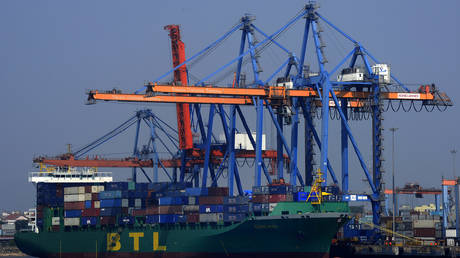
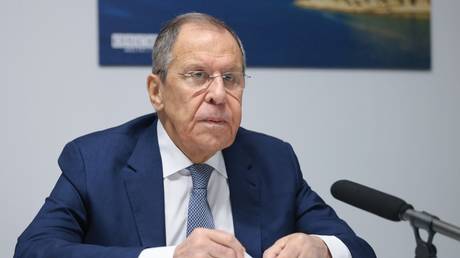

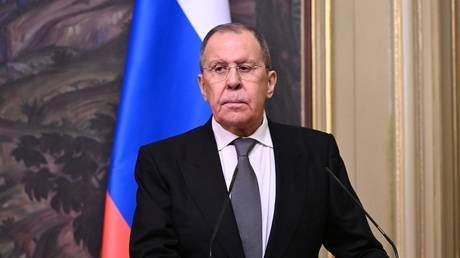
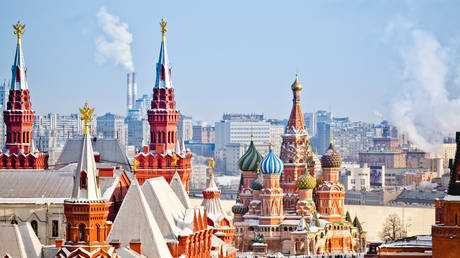
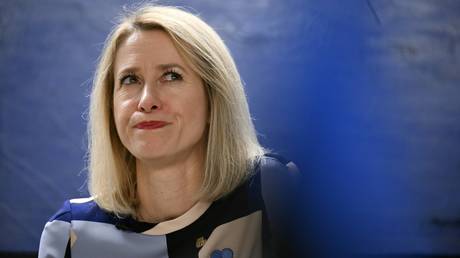


+ There are no comments
Add yours